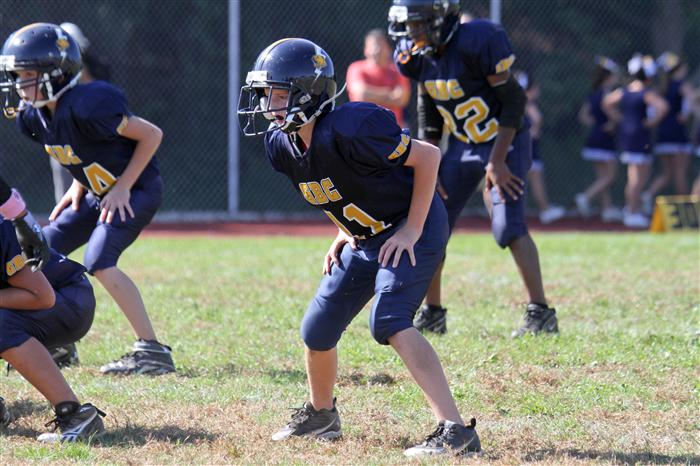There has been a lot of concern and debate lately about youth football safety and concussion prevention. The problem isn’t the game youth football, the issue is how it is being taught to children. Many coaches lack coaching experience. Youth football coaches coach because their child is participating or they have another relative on the team. So more often than not, these coaches do not have the experience to understand how to operate a practice productively and safely.
The safety concerns are at practice. There are football coaches that practice unsafe contact drills or have their kids hit excessively during the practice week. Although concussions are a rarity in youth football, organizations need to have stricter certification classes and requirements. I love the fact that Pop Warner has put some focus towards educating coaches and limit the amount of time children can hit in practice. It makes sense. Most head injuries will be avoided by just teaching your players to keep their head up.
Pop Warner National Rule Changes for Practices
1. No full speed head on blocking or tackling drills in which the players line up more than 3 yards apart are permitted.
2.The amount of contact at each practice will be reduced to a maximum of 1/3 of practice time (either 40 minutes total of each practice or 1/3 of total weekly practice time).
For more information pertaining to the rule changes check out-Pop Warner Youth Football League Rule Changes 2012.
These rule changes are great for the game. I never have believed in doing contact drills for more than 1/3 of a practice. My coaching philosophy doesn’t include putting any of my kids in harms way by doing ridiculous drills (such as lining players up 15 yards across from each other and making them run full speed into each other). Pop Warner football is trying to make the game safer for their players at practice time, where most injuries occur. These rules will also make youth football coaches attempt a safer approach and operation of practices.
These new practice rules and restrictions will be implemented at the start of the this season. Many coaches are asking me now, will there be more missed blocks? Will teams tend to tackle poorly because of these rule changes? Here are some tips and drills for practice that will keep your team’s blocking and tackling skills sharp and within the rules.
1. The Oklahoma Drill. This drill is great because it’s safe and effective. Within the guidelines of the new rules, the children love doing this drill, and you are practicing multiple defensive and offensive positions and techniques all at once. See video.
2. Practice blocking with blocking shield. Have the offensive linemen get into a 3 point stance and fire out on a snap count and block a coach holding a blocking shield. This is great practice that works your O-Lineman’s run blocking technique. You can also work your block shedding. Have the coach try to block the players with the shield and have your kids rip through and lose the block.
3. Tackling Dummies. Have your players tackle tackling dummies. The great thing about tackling dummies is that you can work straight on tackling as well as work on angle tackling. Cannot go wrong with tackling dummies, the kids will always love hitting the dummies.
4. More Individual Position Sessions. Have your players go with their position coach and work on skills and drills for their position. For example, say you want to work tackling with your linebackers- you can do form tackling drills. Form tackling drills will allow you to work on the proper technique to secure a tackle safely, with minimal contact.
Credit Pop Warner Football for being the first youth football organization to address these safety concerns. Football is a contact sport, but in my many years of coaching experience I have never had a child get a concussion. I am able to say that because I understand how to run a safe and productive practice.
